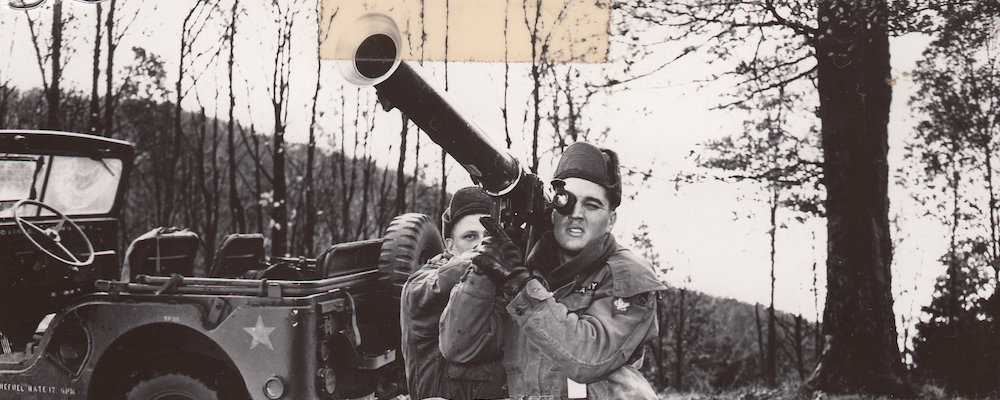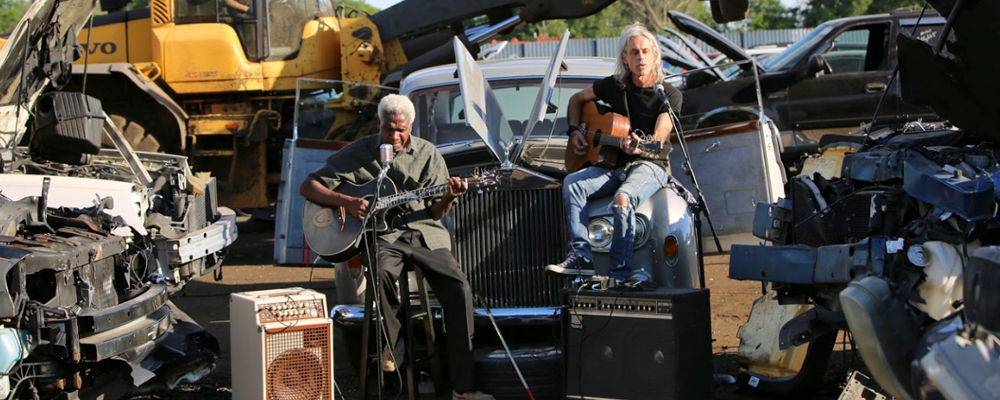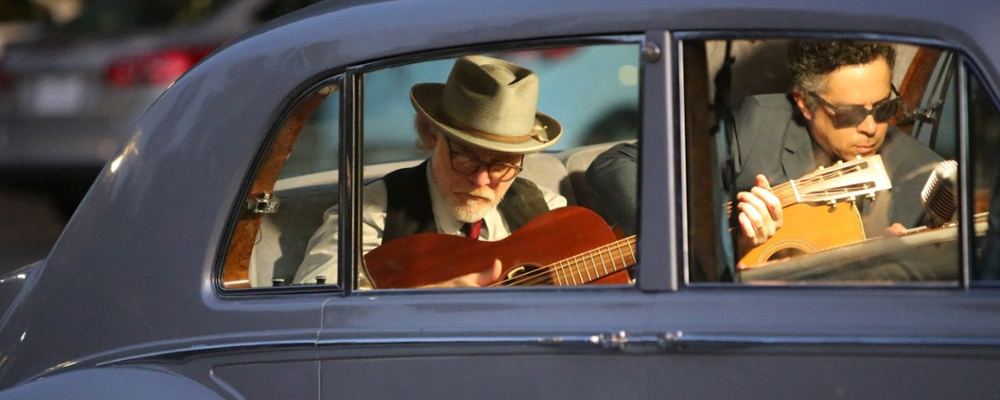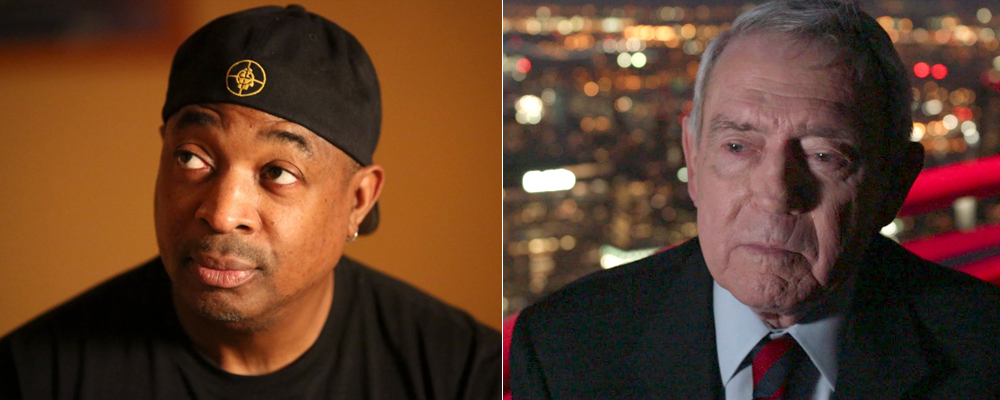Elvis Presley Personifies America’s Highs and Lows in ‘The King’
Alci Rengifo
Our icons are reflections of our past and present. They embody the state of our culture, politics and society. This is the thesis of the fascinating new documentary “The King,” which charts the evolution of America through the image of Elvis Presley. It is not another biography of the rock pioneer, but a work of cultural criticism. Like Raoul Peck’s brilliant “I Am Not Your Negro” about James Baldwin, Eugene Jarecki with “The King” uses a famous persona and his work as a mirror to ourselves. It is fitting, considering Elvis is the big bang of modern pop culture.
Jarecki stages the documentary as a road trip in which he rides around in Elvis’s classic 1964 Rolls-Royce. Along the way he is joined by well-known actors like Ethan Hawke and Alec Baldwin, as well as musicians like Emmylou Harris, Chuck D, Immortal Technique and Rosanne Cash. As they drive through Middle America, they discuss Elvis’s personal history and how it intertwines with the modern history of the United States. Cultural critics like Greil Marcus explain the evolution of Elvis’s music, and how its combination of white and black music roots produced what we know as rock n’ roll. Yet beyond the music, Elvis is envisioned as a walking history of the country. In his youthful early days of stardom in the 1950s, the U.S. emerged as the world hegemon following World War II, coinciding with both the birth of rock n’ roll and an overdue reckoning over segregation. Elvis’s decline becomes a mirror image of the country’s own, slow fall from prosperous hope to economic uncertainty, renewed racial tensions and overseas conflicts. Elvis becomes in the flesh what we crave and devour as a society: Fame, fortune, the hope of endless wealth, the idea that the little guy can rise to the top. Yet he also embodies the dark side of the American dream, if there was such a thing.
“The King” is a truly original documentary that digs beneath the glossy surface of popular culture. Jarecki combines history with commentary as we venture into Elvis’s hometown of Tupelo, Mississippi and witness the shadow of the icon over the surroundings. Elvis impersonators, landmarks and monuments render homage to Tupelo’s greatest discovery, yet the local society lives mired in poverty, joblessness and a restless vibe that foretells the rise of Donald Trump. There is a rather striking moment where an elderly woman living in a rundown neighborhood expresses that for her, the American dreams means family, happiness and good health. The 2016 election is the undercurrent of the film. Alec Baldwin laments that the country is not in the best shape and takes polls through the Rolls-Royce’s windows of passerby, asking who they will vote for. Other commentators reflect on how in Elvis’s era, it was indeed possible to graduate from high school and find a good factory job where you could work for 30 years and send the kids to college. Rock n’ roll erupted on the scene like a subversive noise that shattered the post-war conservative culture. Today the music is the soundtrack of some bygone era.
Jarecki then takes the documentary into the sensitive area what Elvis’s music represents in terms of America’s race relations. It is common knowledge that Elvis combined the sounds of gospel, country and rhythm and blues, but the debate rages over how much was theft and how much was genuine appreciation for culture. Van Jones argues that Elvis was guilty of taking the music of black Americans and then staying silent during the Civil Rights struggles of the 1960s. Muhammad Ali’s radical act in refusing to be drafted is contrasted with Elvis shyly telling an interviewer when asked about politics, “I’m just an entertainer.” Chuck D, in his usually blunt manner, dismisses Elvis as a well-packaged product for white consumption. This is how he explains the infamous Public Enemy line, “Elvis was a hero to most, but he never meant shit to me” in the song “Fight the Power.” Yet journalist and TV writer David Simon argues that you cannot accuse Elvis is simply stealing because his was a hybrid sound, in a way the perfect musical embodiment of the very fabric of American history, of a country made up of mixed cultures.
Much of “The King” covers territory already explored in nearly every Elvis documentary, especially HBO’s recent, epic “Elvis Presley: The Searcher.” His addiction to painkillers, his entrapment by fame and those final, pill-popping shows, all of it is revisited here, but with an emphasis on what these aspects of the Elvis story say about the country’s own course. Former Chief of Staff to Colin Powell Col. Lawrence Wilkerson comments on Elvis’s time in the military, when he reportedly became addicted to sleeping pills, and reflects on how in a way Elvis was not that far from the usual grunt experience. Greil Marcus compares Elvis to Ahab from that supreme American epic, “Moby Dick,” forever chasing the white whale. Elvis himself raises the mic stand during his legendary 1968 comeback special and yells, “Moby Dick!” Such is the American character, forever wrestling with its demons while attempting to define itself and seek opulence. We hear recordings of Elvis describing sudden fame, with an obvious uncertainty in his voice as he almost laments not knowing how to handle it all. Jarecki’s thesis is that such was the psychological state of America, a young nation which rapidly rose to become the world’s superpower. In the same way that youth and inexperience helped Elvis self-destruct, Jarecki wonders if that is our fate as well. Mike Myers appears to give the Canadian perspective, comparing Canada’s general cultural ideology to the rapacious capitalist ethos of the United States. Someone in the documentary compares Elvis’s final years to America at the present, “if Elvis is America, then America is OD’ing.”
The sections focusing on music are wonderfully insightful. Emmylou Harris reflects on Elvis’s pristine gifts, a combination of great looks and fierce stage talent. Ashton Kutcher, of all people, appears in the Rolls-Royce to share on the burden of fame itself. Elvis guitarist Scotty Moore also appears as well as friend and manager Jerry Schilling, both still moved and haunted by their memories of the rock god. Through the music and image, Elvis becomes in this documentary the ultimate tool of U.S. global dominance. If the Romans sent their legions, we broadcast our pop culture. Elvis’s hometown may be trapped in economic decay, but the farthest corners of the world hear of Tupelo because of him.
“The King” is stimulating in the way it takes the Elvis Presley story and turns it into a piercing work of cultural analysis. It has great music, with guest performances ranging from bluegrass to rap. But it stands apart from other documentaries on the snarling icon by being not just about Elvis, but about us.
“The King” releases June 22 in New York, June 29 in Los Angeles, with a nationwide expansion to follow.





